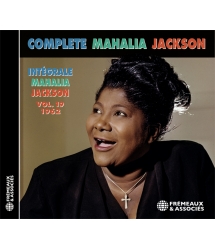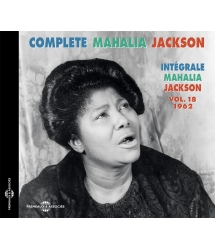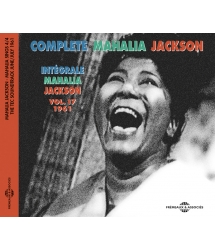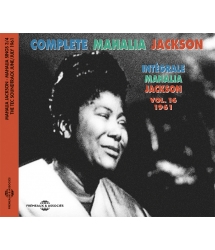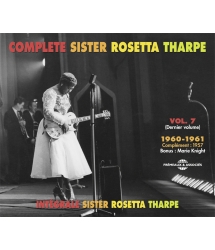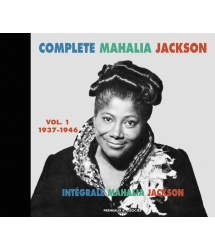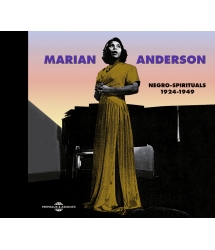- Our Catalog
- Philosophy
- Philosophers of the 20th century and today
- History of Philosophy (PUF)
- Counter-History and Brief Encyclopedia by Michel Onfray
- The philosophical work explained by Luc Ferry
- Ancient thought
- Thinkers of yesterday as seen by the philosophers of today
- Historical philosophical texts interpreted by great actors
- History
- Books (in French)
- Social science
- Historical words
- Audiobooks & Literature
- Our Catalog
- Jazz
- Blues
- Rock - Country - Cajun
- French song
- World music
- Africa
- France
- Québec / Canada
- Hawaï
- West Indies
- Caribbean
- Cuba & Afro-cubain
- Mexico
- South America
- Tango
- Brazil
- Tzigane / Gypsy
- Fado / Portugal
- Flamenco / Spain
- Yiddish / Israel
- China
- Tibet / Nepal
- Asia
- Indian Ocean / Madagascar
- Japan
- Indonesia
- Oceania
- India
- Bangladesh
- USSR / Communist songs
- World music / Miscellaneous
- Classical music
- Composers - Movie Soundtracks
- Sounds of nature
- Our Catalog
- Youth
- Philosophy
- News
- How to order ?
- Receive the catalog
- Manifesto
- Dictionnary











- Our Catalog
- Philosophy
- Philosophers of the 20th century and today
- History of Philosophy (PUF)
- Counter-History and Brief Encyclopedia by Michel Onfray
- The philosophical work explained by Luc Ferry
- Ancient thought
- Thinkers of yesterday as seen by the philosophers of today
- Historical philosophical texts interpreted by great actors
- History
- Books (in French)
- Social science
- Historical words
- Audiobooks & Literature
- Our Catalog
- Jazz
- Blues
- Rock - Country - Cajun
- French song
- World music
- Africa
- France
- Québec / Canada
- Hawaï
- West Indies
- Caribbean
- Cuba & Afro-cubain
- Mexico
- South America
- Tango
- Brazil
- Tzigane / Gypsy
- Fado / Portugal
- Flamenco / Spain
- Yiddish / Israel
- China
- Tibet / Nepal
- Asia
- Indian Ocean / Madagascar
- Japan
- Indonesia
- Oceania
- India
- Bangladesh
- USSR / Communist songs
- World music / Miscellaneous
- Classical music
- Composers - Movie Soundtracks
- Sounds of nature
- Our Catalog
- Youth
- Philosophy
- News
- How to order ?
- Receive the catalog
- Manifesto
- Dictionnary
COMPLETE MAHALIA JACKSON VOL 11 - 1960
MAHALIA JACKSON
Ref.: FA1321
EAN : 3561302132129
Artistic Direction : JEAN BUZELIN
Label : Frémeaux & Associés
Total duration of the pack : 1 hours 2 minutes
Nbre. CD : 1
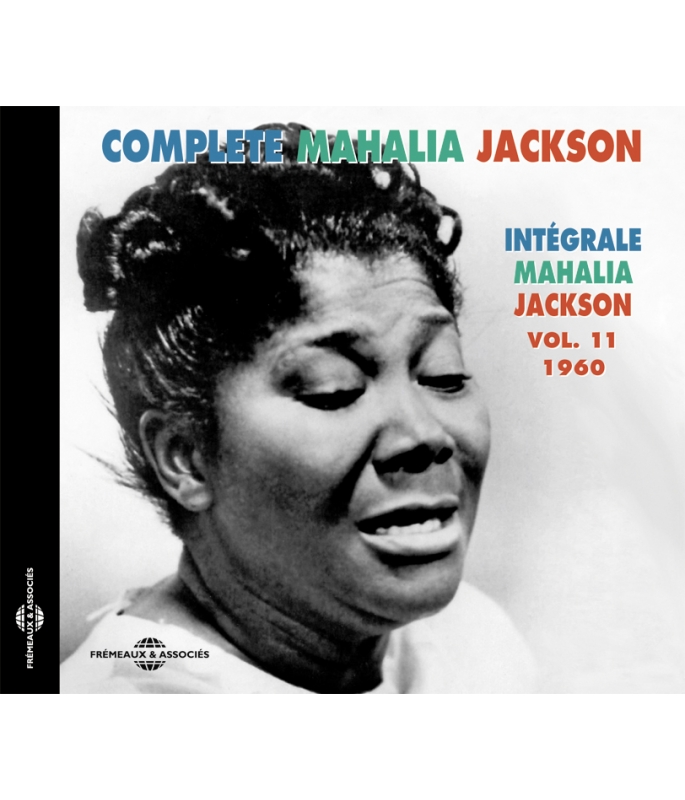
COMPLETE MAHALIA JACKSON VOL 11 - 1960
COMPLETE MAHALIA JACKSON VOL 11 - 1960
“1960, the dawn of a decade that would change the world: the universal message conveyed by Mahalia Jackson’s deeply moving singing was not only relevant to its time but also an inescapable sign of what was to come.” Jean BUZELIN
-
PisteTitleMain artistAutorDurationRegistered in
-
1Holy, Holy, HolyMahalia Jackson, Percy FaithR. Heber00:02:551960
-
2Nearer my God to theeMahalia Jackson, Percy FaithS. Adams00:04:041960
-
3My Country tis of theeMahalia Jackson, Percy FaithS. Smith00:02:361960
-
4The holy cityMahalia Jackson, Percy FaithF. Weatherly00:05:321960
-
5Onward christian soldiersMahalia Jackson, Percy FaithS. Baring-Gould00:02:531960
-
6The lord is my lightMahalia Jackson, Percy FaithF. Allisten00:03:451960
-
7Lift Up Your HeadsMahalia Jackson, Percy FaithE. Ashford00:03:591960
-
8Abide With MeMahalia Jackson, Percy FaithH. Lyte00:03:061960
-
9I See GodMahalia Jackson, Johnny Williams, Mildred FallsR. Leveen00:03:241960
-
10I'M GratefulMahalia Jackson, Johnny Williams, Mildred FallsE. Drake00:03:541960
-
11TroubleMahalia Jackson, Johnny Williams, Mildred FallsD. M. Akers00:03:151960
-
12I Asked The LordMahalia Jackson, Johnny Williams, Mildred FallsJ. Lange00:03:001960
-
13Somebody Bigger Than You And IMahalia Jackson, Johnny Williams, Mildred FallsJ. Lange00:03:051960
-
14Always Look Up, Never Look DownMahalia Jackson, Johnny Williams, Mildred FallsJ. Beal00:03:161960
-
15Holding My Saviour's HandMahalia Jackson, Johnny Williams, Mildred FallsR. Anderson00:03:191960
-
16My God And IMahalia Jackson, Johnny Williams, Mildred FallsAA. Wihtol00:02:061960
-
17I Hear The AngelsMahalia Jackson, Johnny Williams, Mildred FallsR. Anderson00:04:511960
-
18I BelieveMahalia Jackson, Johnny Williams, Mildred FallsE. Drake00:03:061960
Mahalia Jackson vol. 11 FA 1321
COMPLETE MAHALIA JACKSON Vol.11
INTÉGRALE MAHALIA JACKSON VOL. 11 1960
Nous avions quitté Mahalia Jackson le 21 février 1960, alors qu’elle venait d’enregistrer, en compagnie du célèbre chef d’orchestre et arrangeur Percy Faith, les quatre premiers titres d’un futur album. Nous la retrouvons le lendemain, dans le même studio d’Hollywood, pour la suite du programme : non pas des negro spirituals ni des gospel songs, mais une série d’hymnes chrétiens connus dans toutes les communautés américaines.
Jean Buzelin
We left Mahalia Jackson on 21 February 1960 when, alongside the famous bandleader and arranger Percy Faith, she had just recorded the first four tracks of a future album. We rejoin her the following day, in the same Hollywood studios, for the rest of the programme: neither Negro spirituals nor Gospel songs, but a series of Christian hymns familiar to all Americans.
Jean Buzelin
«?1960, l’aube d’une décennie qui va changer le monde : le message universel que délivre Mahalia Jackson grâce à son chant bouleversant, non seulement demeure d’actualité mais il annonce irrémédiablement les temps à venir.?»
Jean Buzelin
“1960, the dawn of a decade that would change the world: the universal message conveyed by Mahalia Jackson’s deeply moving singing was not only relevant to its time but also an inescapable sign of what was to come.”
Jean Buzelin
L’Intégrale chronologique Mahalia Jackson (de même que la série consacrée à Sister Rosetta Tharpe) offre l’œuvre exhaustive de celle qui restera l’une des plus grandes artistes de Gospel, et par la même, l'une des grandes inspiratrice de la culture noire-américaine du XXe siècle. Les disques sources, en provenance de la collection de Jean Buzelin, auteur de l'Intégrale, aidé par l’ensemble des collectionneurs des œuvres de Mahalia Jackson, font l’objet des meilleurs transferts analogiques et d’une restauration numérique utilisant les technologies les plus sophistiquées sans jamais recourir à une modification du son d’origine.
Patrick Frémeaux et Claude Colombini
The complete Mahalia Jackson recordings (presented chronologically as in the Sister Rosetta Tharpe series) reveal a personality who will remain one of the greatest-ever Gospel artists, a singer who filled 20th century Afro-American culture with inspiration. The source of this vital music is the collection of Jean Buzelin, the author of this anthology, together with the aid of collectors of Mahalia Jackson's work; all these recordings have been restored with the best analog transfers and most sophisticated technology available, to avoid any alteration of the original sound.
WITH PERCY FAITH
1. HOLY, HOLY, HOLY 2’53
2. NEARER, MY GOD, TO THEE 4’02
3. MY COUNTRY ‘TIS OF THEE (AMERICA) 2’34
4. THE HOLY CITY 5’31
5. ONWARD, CHRISTIAN SOLDIERS 2’51
6. THE LORD IS MY LIGHT 3’43
7. LIFT UP YOUR HEADS 3’57
8. ABIDE WITH ME 3’02
WITH JOHNNY WILLIAMS
9. I SEE GOD 3’22
10. I’M GRATEFUL 2’52
11. TROUBLE 3’13
12. I ASKED THE LORD 2’58
13. SOMEBODY BIGGER THAN YOU AND I 3’03
14. ALWAYS LOOK UP, NEVER LOOK DOWN 3’14
15. HOLDING MY SAVIOUR’S HAND 3’17
16. MY GOD AND I2’04
17. I HEAR THE ANGELS 4’50
18. I BELIEVE 3’06
Nous avions quitté Mahalia Jackson le 21 février 1960, alors qu’elle venait d’enregistrer, en compagnie du célèbre chef d’orchestre et arrangeur Percy Faith, les quatre premiers titres d’un futur album. Nous la retrouvons le lendemain, dans le même studio d’Hollywood, pour la suite du programme : non pas des negro spirituals ni des gospel songs, mais une série d’hymnes chrétiens connus dans toutes les communautés américaines. Mahalia en avait fait le choix elle-même avant qu’ils ne soient confiés à la lourde patte de Percy Faith. Elle avait notamment insisté pour chanter My Country ‘tis Of Thee, connu aussi sous le simple titre America, dont les paroles sont écrites sur l’air du God Save the King/Queen. “Je veux chanter un hymne de mon pays”, avait-elle déclaré. Un hymne que s’est appropriée volontiers la communauté afro-américaine?; souvenons nous récemment de la magnifique interprétation qu’en a donnée Aretha Franklin lors de la première investiture de Barack Obama. Ce qui n’empêche pas cet album, “The Power And The Glory”, de laisser les amateurs de gospel de marbre, s’ils sont indulgents, ou de leur hérisser le poil tellement les arrangements et l’accompagnement surchargés n’ont pas l’once d’un rapport avec la tradition afro-américaine. Le démarrage en fanfare, pompier, Holy, Holy, Holy, ne les mettra pas en de bonnes dispositions. Mais il faut reconnaître que, malgré cet environnement oppressant, Mahalia chante magnifiquement. Elle arrive à transfigurer des cantiques comme Nearer, My God, To Thee ou The Holy City et parvient à leur donner une grandeur grâce à sa voix et son chant qui atteint, en cette période, des sommets. “Cet homme connaît son affaire”, dira-t-elle en parlant de Faith. On pourra paraphraser son commentaire : seul un(e) artiste d’exception pouvait se sortir aussi brillamment de ce guêpier. Publié sous les deux noms de Mahalia Jackson et de Percy Faith d’égale grosseur sur la pochette, cet album fera un best-seller aux États-Unis. Compte tenu des goûts du public visé, les dirigeants de Columbia, et en particulier Irving Townsend, ne s’étaient pas trompés.
Durant son séjour californien, Mahalia Jackson répond a diverses invitations, et participe notamment à un banquet à Long Beach organisé par la hiérarchie baptiste, la première réunion mixte (Noirs et Blancs) de ce genre.
Accompagnée de ses accompagnateurs Mildred Falls et de Willie Webb, qui étaient restés sagement assis sur leur chaise durant l’enregistrement des hymnes, Mahalia s’envole directement pour Boston, où elle doit donner un récital au Constitution Hall devant 3 000 personnes. Parmi elles sont présents Townsend, le grand disc-jockey noir Joe Bostic qui la suit depuis ses débuts à New York, et une importante délégation de sommités religieuses de Chicago, dont le révérend John Thurston. Son ami, et fan, Chester Bowles, ancien sénateur démocrate du Connecticut (et futur ambassadeur en Inde), lui fait rencontrer au Capitol Hill le vice-président Hubert Humphrey et d’autres personnalités, avant de l’inviter dans sa maison de Georgetown.
Parmi ses activités, elle donne un concert à Pittsburgh devant 18?000 personnes. Mais toujours réticente à apparaître sur les scènes de music-hall, elle refuse de participer à la comédie musicale de Langston Hughes, “Tambourine for Glory”.
Pendant ce temps, son producteur Irving Townsend prépare une nouvelle séance qui doit se dérouler à Los Angeles au mois de mai 1960. Cette fois-ci, comme il le note lui-même au dos de la pochette, il sollicite “un jeune pianiste-arrangeur californien, Johnny Williams, avec l’accompagnatrice de Mahalia, Mildred Falls au piano, et comme à l’habitude sur les disques de Mahalia, l’orchestre et le chœur comprennent des musiciens de jazz et des membres de son église.”
Ce jeune pianiste-arrangeur californien est devenu depuis l’un des musiciens américains les plus célèbres. Né en 1932, John T. Williams effectue de sérieuses études musicales avant de diriger, dès l’âge de 15 ans, son propre orchestre de jazz. Il commence à se faire connaître en 1958 par ses musiques de films, et va, au fil des années, acquérir une réputation considérable dans ce domaine, composant des dizaines et des dizaines de musiques pour des productions cinématographiques qui feront le tour du monde : “Star Wars”, “E.T.”, “Superman”, “Harry Potter”, etc. (1) Il est le compositeur attitré de George Lucas et de Steven Spielberg, sa dernière partition accompagnant “Tintin : Le Secret de la Licorne”. Williams est également connu pour ses œuvres dans le domaine “classique” (concertos, quatuors, musiques symphoniques…), et il est l’auteur de la pièce pour quatuor également jouée pour l’investiture du président Obama. Également chef d’orchestre réputé, il a été invité par les plus grandes institutions mondiales. Bref, “c’est quelqu’un”, dirait le populaire !
Lorsqu’il écrit ses arrangements et prend la baguette pour habiller le chant de Mahalia Jackson en mai 1960, il n’est pas encore très connu. Et là, force est de reconnaître qu’Irving Townsend a bien choisi. En effet, l’écoute du résultat obtenu montre qu’il s’en est bien mieux sorti que Percy Faith — on ne lui a pas demandé la même chose. En grand connaisseur du jazz, Johnny Williams a su inscrire ses arrangements de bon goût, jamais envahissants, sur un soubassement rythmique qui laisse transparaître le swing, même si tous les tempos sont lents. Les entrées de l’orchestre et du chœur sont légères et délicates. Bref, l’arrangeur s’est mis au service de la soliste et ne l’a pas noyée sous un déluge de cordes. Williams a eu la bonne idée de confier le piano à Mildred Falls, qu’on entend abondamment en introduction et en contrepoint de la chanteuse, il a laissé des espaces pour l’orgue que tient la “revenante” Louise Weaver (2), glissé quelques interventions de guitare, etc.
S’il ne s’agit pas de gospel à l’état brut, sauvage, enflammé, si le choix du répertoire est parfois discutable, quoique bien choisi et varié, il en résulte à l’arrivée un bel album, homogène et bien composé. Il comprend pour moitié des reprises, pour moitié des nouveautés pour la chanteuse.
Somebody Bigger than You and I, de Johnny Lange, figurait dans son premier 33 tours Columbia?; il avait été enregistré lors de la première séance de Mahalia pour cette compagnie, en novembre 1954, avec le Falls-Jones Ensemble (3). Quant à la première mouture de I See God, elle datait de juin 1955 et recevait l’appui de l’orchestre de Ray Ellis (3)?; nous préférons cette nouvelle version. Une autre composition de Johnny Lange, I Asked the Lord, avait été enregistrée en novembre 1955, toujours avec Mildred Falls au piano et Ralph Jones à l’orgue, en même temps que I’m Grateful, de Ervin Darke et Jimmy Shirl (4). Enfin, des mêmes auteurs, nous retrouvons le célèbre I Believe, qui donnera son titre à l’album, et dont la première version par Mahalia remontait à une séance Apollo d’août 1953 (5).
À l’exception peut-être de Always, Look Up…, les morceaux nouveaux ont une caractéristique gospel plus marquée. Trouble est une pièce de son amie Doris Mae Akers que celle-ci a enregistré en 1957, et Holding My Saviour’s Hand, une de Robert Anderson qui l’avait créée sur disque en 1950. Mahalia retrouve d’ailleurs son ancien pianiste des années 40 pour l’écriture de I Hear the Angels.
Reste un morceau qui interroge l’amateur et l’historien. Il s’agit de My God and I, adaptation d’un air folklorique lituanien par le compositeur A. A. Wihtol (6). Il ne figure que dans l’édition mono de l’album “I Believe”, et non dans l’édition originale stéréo.
A-t-il été rajouté ? Provient-il d’une séance antérieure ? Ce titre avait été déjà enregistré le 27 mars 1956 (donc en mono) et, depuis, est toujours été resté inédit d’après les discographes. S’agirait-il de cette première mouture ? D’autant que si l’on entend le piano, la guitare, quelques cloches comme ailleurs dans l’album, c’est la seule pièce où il n’y a pas d’accompagnement orchestral. Pourtant, l’écoute attentive des autres morceaux de la séance de 1956 ne penche pas en faveur de cette option : le son en est très différent (7). À défaut donc de trancher catégoriquement, laissons My God and I à sa place, dans la chronologie établie par la “Gospel Discography”.
Curieusement, ce premier album, très réussi, avec Johnny Williams (8) n’a jamais fait l’objet d’une réédition. Nous pouvons donc l’écouter ici pour la première fois en CD dans les meilleures conditions de restauration, d’autant que le son stéréophonique d’origine était excellent et la gravure irréprochable. Il permet d’apprécier dans toutes ses nuances vocales, ses modulations, sa puissance et sa force de conviction, le chant de la grande Mahalia Jackson, alors à l’apogée de son art.
En ce printemps 1960, la chanteuse est sollicitée pour soutenir la campagne présidentielle de John F. Kennedy. Il sera élu le 8 novembre, et Mahalia chantera The Star-Spangled Banner lors de la cérémonie de son investiture, le 27 janvier 1961.
Peu de temps après, elle s’envolera pour l’Europe, près de neuf ans après sa première tournée en demi-teinte. Cette foi-ci, le Vieux Continent (dont l’Angleterre qui l’avait boudé à l’automne 1952) est prêt à l’accueillir comme il se doit, c’est-à-dire comme une Reine.
Jean BUZELIN
Jean Buzelin est l’auteur de Negro Spirituals et Gospel Songs, Chants d’espoir et de liberté (Ed. du Layeur/Notre Histoire, Paris 1998)?; il collabore à la Gospel Discography de Cedric J. Hayes & Robert Laughton (rubriques Mahalia Jackson, Sister Rosetta Tharpe, Golden Gate Quartet, etc.).
© FRÉMEAUX & ASSOCIÉS
Notes
(1) Liste impressionnante qu’on peut consulter sur Wikipédia.
(2) Alors organiste de la 44th Street Baptist Church de Chicago du Rev. Thurston, Louise Overall Weaver avait déjà enregistré avec Mahalia en septembre et octobre 1950, et l’a souvent accompagnée en concert et en tournée.
(3) Voir Complete Mahalia Jackson Vol. 5 (FA 1315).
(4) Voir Complete Mahalia Jackson Vol. 6 (FA 1316). Notons que I Asked the Lord avait été créé par le chanteur country Fiddlin’ John Carson en 1924, et qu’Elvis Presley venait de l’enregistrer en 1959.
(5) Voir Complete Mahalia Jackson Vol. 4 (FA 1914). I Believe, créé par Jane Froman en 1953, et dont Frankie Laine fit un énorme hit, a été, au fil du temps, enregistré par une multitude d’artistes, parmi lesquels Sister Rosetta Tharpe (Complete Vol. 6 - FA 1306), Alex Bradford, Bessie Griffin, Marion Williams, les Five Blind Boys of Alabama, Swan Silvertones, Ward Singers, Edwin Hawkins Singers, etc., sans oublier Frank Sinatra, Elvis Presley, Barbra Streisand… et Mouloudji en français !
(6) Né à Riga en 1889, Austria A. Wihtol émigra aux États-Unis en 1909. Le titre My God and I a été déposé en 1935.
(7) Voir Complete Mahalia Jackson Vol. 7 (FA 1317).
(8) Le résultat de cette première collaboration a dû satisfaire tout un chacun, puisque Johnny Williams sera sollicité à plusieurs reprises dans les années qui suivirent : albums “Everytime I Feel the Spirit”, “Great Songs of Love and Faith”, “Silent Night”…
Ouvrages consultés
Laurraine Gorreau : Mahalia (Lion Pub., UK 1976 - 2e édition)
Jules Schwerin : God To Tell It :Mahalia Jackson (Oxford University Press, 1992)
Anthony Heilbut : The Gospel Sound (Limelight Ed., 1992)
Cedric J. Hayes & Robert Laughton : Gospel Discography 1943-1970 (Eyeball Productions Inc., 2007)
Nous remercions particulièrement pour leur aide Patrice Buzelin et Friedrich Mülhöcker.
Photos & collections : Gilles Pétard, Sony Music Photos Archives, X (D.R.)
We left Mahalia Jackson on 21 February 1960 when, alongside the famous bandleader and arranger Percy Faith, she had just recorded the first four tracks of a future album. We rejoin her the following day, in the same Hollywood studios, for the rest of the programme: neither Negro spirituals nor Gospel songs, but a series of Christian hymns familiar to all Americans. Mahalia had chosen them herself before they could be handed over to Percy Faith’s somewhat heavier treatment. In particular she insisted on singing My Country ‘Tis Of Thee, also known under the simpler title America, the words written to the tune of God Save The King/Queen. “I want to sing one hymn to my country” she declared. An anthem that was readily accepted by the Afro-American community, as is evident in the recent magnificent interpretation by Aretha Franklin at Barack Obama’s first inauguration. This did not, however, prevent this album “The Power and the Glory” from receiving a cool reception on the part of some gospel fans and incensing others with its over-embellished arrangements and backing which were far removed from the Afro-American tradition. The pompous opening fanfare of Holy, Holy, Holy did not please them at all. Yet, in spite of this oppressive ambience, Mahalia’s singing is still superb. She manages to transform and imbue with a certain grandeur such hymns as Nearer My God To Thee and The Holy City, thanks to her interpretation and her voice which was at its peak at the time. She said of Faith “that man knows what he’s doing” but the same might be said of her. Only an exceptional performer, whether male or female, would have been able to create something so brilliant out of this confusion. Issued under the names of Mahalia Jackson and Percy Faith, both of which were given equal prominence on the cover, the album became a best-seller in the United States. The heads of Columbia, and Irving Townsend in particular, had judged public taste to a T.During her stay in California Mahalia accepted several invitations, attending in particular a banquet at Long Beach organised by the Baptist hierarchy, the first mixed-race meeting of its kind.
Together with her accompanists, Mildred Falls and Willie Webb, who had been there during the recording of the hymns, Mahalia took off directly for Boston where she gave a recital in the Constitution Hall to an audience of 3000. Among them Townsend, the great black DJ Joe Bostic who had followed her career since her early days in New York, and a large delegation of prominent religious leaders from Chicago including the Reverend John Thurston. Her friend and fan, Chester Bowles, ex-Democrat Senator for Connecticut (and future Ambassador to India), introduced her on caption Hill to Vice-President Hubert Humphrey and other well-known figures, before inviting her to his home in Georgetown.
She also gave a concert in Pittsburgh that attracted an audience of 18000 but, reluctant as always to appear on the music hall stage, she refused to take part in Langston Hughes’ musical comedy “Tambourine for Glory”.
Meanwhile, her producer Irving Townsend was preparing a new session to take place in Los Angeles in May 1960. This time, as he notes himself on the sleeve notes, he called on “a young Californian arranger-pianist Johnny Williams, with Mahalia’s accompanist Mildred Falls on piano. And, as customary on Mahalia’s records, the orchestra and chorus include jazz musicians and members of her church.”
This young Californian arranger-pianist has since become one of the most famous American musicians. Born in 1932, John T. Williams studied music before fronting, at the age of 15, his own jazz band. He began to be noticed in 1958 for his film music and over the years would make a considerable name for himself in this domain, composing dozens of scores for films that would become known world-wide: “Star Wars”, “E.T.”, “Superman”, “Harry Potter” etc. (1) He was George Lucas and Steven Spielberg’s regular composer, his final score is the soundtrack for “Tintin: the Secret of the Unicorn”. Williams was also known for his classical work (concertos, quartets, symphonies…) and wrote the quartet that was played during Barack Obama’s inauguration. Also a respected conductor, he appeared with some of the world’s leading orchestras. However, when he was chosen to accompany Mahalia Jackson in May 1960, he was still relatively unknown but Irving Townsend had chosen well. In fact, he came out of it much better than Percy Faith – although he was not asked to do the same thing. Because of his familiarity with jazz Williams was able to adapt tasteful, unobtrusive arrangements to a rhythmic backing that was allowed to swing, even on slow numbers. The introductions of the orchestra and choir are light and delicate. In short, the arranger was there to serve the soloist and not to drown her in a deluge of notes. Williams had the great idea of entrusting the piano to Mildred Falls, who provides extensive introductions and counterpoint for the singer, but he also left room for the organ in the hands of Louise Weaver (back once more) (2) and slipped in a few guitar interventions etc. While this was not rough, earthy gospel and the choice of repertoire, although very varied, left much to be desired, the result was still an excellent, homogenous and well put together album. It included fifty percent of reprises by the singer and fifty percent new titles.
Somebody Bigger Than You And I, featured on her first Columbia LP, was recorded during Mahalia’s first session for the company in November 1954, with the Falls-Jones Ensemble (3). The first take of I See God, backed by the Ray Ellis orchestra, dates from June 1955; personally we prefer the newer version. Another Johnny Lange composition, I Asked The Lord, was recorded in November 1955, again with Mildred Falls on piano and Ralph Jones on organ, at the same time as I’m Grateful by Ervin Darke and Jimmy Shirl. (4) Finally, by the same composers, we have I Believe, from which the album gets its title and the first version of which by Mahalia goes back to the Apollo in August 1953. (5) With the exception perhaps of Always Look Up…, the new titles are more markedly gospel. Trouble is by her friend Doris Mae Akers which the latter had recorded in 1957 and Holding My Saviour’s Hand by Robert Anderson which he cut in 1950. Moreover Mahalia joined up again with her pianist from the 40s for I Hear The Angels.
There still remains an intriguing piece, My God And I, adapted from a Latvian folk song by the composer A.A. Wihtol. (6) It only appears on the mono issue of the LP “I Believe” and not on the original stereo issue. Was it added? Does it come from a previous session? This title had already been recorded on 27 March 1956 (hence in mono) and since then had always remained unissued according to discographies. Could this be the first take? Particularly because, although one can hear the piano, the guitar and a few bells as elsewhere on the album, it is the only piece without orchestral accompaniment.
However, close scrutiny of the other titles of the 1956 session does not support this option as the sound is very different (7). So without reaching any definitive conclusion let us leave My God And I in its place as established chronologically in the “Gospel Discography”.
Strangely enough, this first very successful album with Johnny Williams (8) has never been reissued. Hence we can hear it here on this CD for the very first time, in an excellently restored version, especially as the original sound was first rate and the recording technique faultless. It enables us to appreciate to the full all the vocal nuances, the modulations, power and conviction of the great Mahalia Jackson’s superb voice, at the height of her powers.
In spring 1960, the singer was invited to support John F. Kennedy’s presidential campaign. He was elected on 8 November and Mahalia sang The Star-Spangled Banner at his inauguration on 27 January 1961.
Shortly afterwards she took off for Europe, almost nine years after her first rather subdued tour. This time Europe (including England which had largely ignored her in autumn 1952) was ready to welcome her as she deserved, that is as a Queen.
Adapted from the French text of Jean BUZELIN by Joyce WATERHOUSE
Jean Buzelin is the author of Negro Spirituals et Gospel Songs, Chants d’espoir et de liberté (Ed. du Layeur/Notre Histoire, Paris 1998); he collaborated on the Gospel Discography by Cedric J. Hayes & Robert Laughton (sections on Mahalia Jackson, Sister Rosetta Tharpe, Golden Gate Quartet etc.).
© FRÉMEAUX & ASSOCIÉS
Notes
(1) An impressive list that can be consulted on Wikipedia.
(2) While organist at the 44th Street Baptist Church in Chicago of the Rev. Thurston, Louise Overall Weaver had already recorded with Mahalia in September and October 1950, and had often accompanied her in concert on tour...
(3) See Complete Mahalia Jackson Vol.5 (FA1315).
(4) See Complete Mahalia Jackson Vol.6 (FA1316). Note that I Asked The Lord was created by country singer Fiddlin’ John Carson in 1924, and that Elvis had just recorded it in 1959.
(5) See Complete Mahalia Jackson Vol.4 (FA1314.). I Believe, created by Jane Froman in 1953, and with which Frankie Laine had a huge hit, was later recorded by numerous artistes, including Sister Rosetta Tharpe (Complete Vol. 6 - FA 1306), Alex Bradford, Bessie Griffin, Marion Williams, the Five Blind Boys of Alabama, Swan Silverstones, Ward Singers, Edwin Hawkins Singers etc., without forgetting Frank Sinatra, Elvis Presley, Barbra Streisand… and Mouloudji in French!
(6) Born in Riga in 1889, Austria, A. Wihtol emigrated to the USA in 1909. The title My God And I was registered in 1935.
(7) See Complete Mahalia Jackson Vol.7 (FA1317).
(8) The result of this first collaboration must have pleased everyone since Johnny Williams was frequently called on over the following years: albums “Everytime I Feel The Spirit”, “Great Songs Of Love And Faith”, Silent Night”…
Works consulted
Laurraine Gorreau: Mahalia (Lion Pub. UK 1976 – 2nd edition).
Jules Schwerin: God To Tell It: Mahalia Jackson (O.U.P., 1992).
Anthony Heilbut: The Gospel Sound (Limelight Ed. 1992).
Cedric J. Hayes & Robert Laughton: Gospel Discography 1943 – 1970 (Eyeball Productions, Inc. 2007).
With special thanks for their help to Patrice Buzelin and Friedrich Mühlöcker.
Photos & collections : Gilles Pétard, Sony Music Photos Archives, X (D.R)
1. HOLY, HOLY, HOLY (R. Heber - J. Dykes) RHCO46496
2. NEARER, MY GOD, TO THEE (S. Adams - L. Mason) RHCO46497
3. MY COUNTRY ‘TIS OF THEE (AMERICA) (S. Smith - H. Carey) RHCO46498
4. THE HOLY CITY (F. Weatherly - S. Adams) RHCO 46499
5. ONWARD, CHRISTIAN SOLDIERS (S. Baring-Gould - A. Sullivan) RHCO 46500
6. THE LORD IS MY LIGHT (F. Allisten - words from Psalm 27) RHCO46501
7. LIFT UP YOUR HEADS (E. Ashford) RHCO46502
8. ABIDE WITH ME (H. Lyte - W. Monk) RHCO46503
9. I SEE GOD (R. Leveen - M. Mencher)
10. I’M GRATEFUL (E. Drake - J. Shirl)
11. TROUBLE (D.M. Akers)
12. I ASKED THE LORD (J. Lange - J. Duncan)
13. SOMEBODY BIGGER THAN YOU AND I (J. Lange - H. Heath - S. Burke)
14. ALWAYS LOOK UP, NEVER LOOK DOWN (J. Beal - J. Shank - F. James)
15. HOLDING MY SAVIOUR’S HAND (R. Anderson - Y. Reed)
16. MY GOD AND I (A.A. Wihtol)
17. I HEAR THE ANGELS (R. Anderson - M. Jackson)
18. I BELIEVE (E. Drake - I. Graham - J. Shirl - A. Stillman)
Mahalia Jackson (vocal) with:
(1-8) Orchestra & choir cond. by Percy Faith. Hollywood, 22/02/1960
(9-13) Orchestra & choir cond. by Johnny Williams featuring Mildred Falls; Mildred Falls (piano), Louise Overall Weaver (organ). Los Angeles, 23/05/1960.
(14-18) Same. Los Angeles, 24/05/1960.
CD Complete Mahalia Jackson - Intégrale Mahalia Jackson vol. 11 1960, © Frémeaux & Associés 2013.
